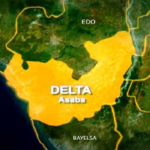
Investment in Nigerian tech dropped by 30 per cent towards the end of the second quarter of 2022 according to Africa: The Big Deal.
Data from the database and insights firm which focuses on startup funding above $100,000 in Africa showed that of the big four in Africa — Nigeria, Egypt, South Africa, and Kenya—only Nigeria witnessed a dip in the quarter.
It stated, “Start-ups in Africa have raised $1.3bn in Q2 2022, which adds up to $3.1bn in the first half of the year. Let me put it this way: June 2022 was the ecosystem’s strongest June ever in terms of fundraising. Q2 2022 was the ecosystem’s strongest Q2 ever. H1 2022 was the ecosystem’s strongest H1 ever.”
The Nigerian tech sector has been touted as one of the nation’s bright lights by the government, investors, and the populace.
Overall, funding into the nation in Q2 2022 is 2.3 times higher than it was in Q2 2021. The firm said, “June 2022 was much stronger than June 2021 in South Africa (6.4x YoY), Egypt (3.4x) and Kenya (3.3x); only in Nigeria do we see a dip (-30 per cent), which does not weigh down on its Q2 and H1 numbers though.
“Indeed, Q2 2022 was stronger than Q2 2021 across the board: 12x in Kenya, 2.4x in Egypt, 2.3x in Nigeria, and 1.3x in South Africa. And finally, H1 2022 really has got nothing to envy to H1 2021 in Kenya (5.2x YoY), Egypt (3.2x) or Nigeria (2.3x).”
In the first quarter of 2022, Nigerian startups raised $600m, followed by Kenya’s $482m, South Africa’s $228m, and Egypt’s $202m. The rest of Africa raised $306m to bring the total value of funding to $1.8b in Q1, 2021.
It explained that inflation, food insecurity, bear markets, and others could impact Nigeria and other African nations’ ability to raise funding in the global market. According to the firm, while the global tech industry has been grappling with mass layoffs and bankruptcies, Africa as a whole is on course to raise its highest ever total.
However, it explained that funding rounds might begin to slow down on the continent. It added, “Now there’s no denying that the context is tough and that between inflation, food insecurity, bear markets, supply chain issues and more, start-ups in Africa are/will be affected in their growth and capacity to raise.”
Regardless, African startups are on course to raise more than the over $4.3 billion they raised in 2021. While this is the first dip in funding into the nation, experts in the startup space have said a gradual funding decline.
In an earlier interview, the founder of Lendsqr and a trustee of Open Banking Nigeria, Adedeji Olowe, has explained to The PUNCH that funding rounds on the continent had started to slow down with an obvious dip from July.
He said, “The funding raises have started reducing from Q2. If we wait till July when the quarterly numbers come, we will see the dip. The dip is affecting everyone. We are going to witness a reduction in funding raises.”
He explained that with rising interest rates in the United States, investors are diverting their funds to safe places like the US treasury bills than investing in uncertain markets.
He explained that funding into the nation’s startup space is largely from Venture Capitals, which are largely foreign.
The assistant general manager, projects, and relationships, of the Fintech Association of Nigeria, Seun Folorunso, added, “Yes, the dip everywhere. Everyone is going to feel the effect of the ripple effect of the Ukraine-Russian war.
“This dip will last for a while. But it also calls on us to be more creative because the available funds will have to be channeled to where the biggest impact is being made.”





